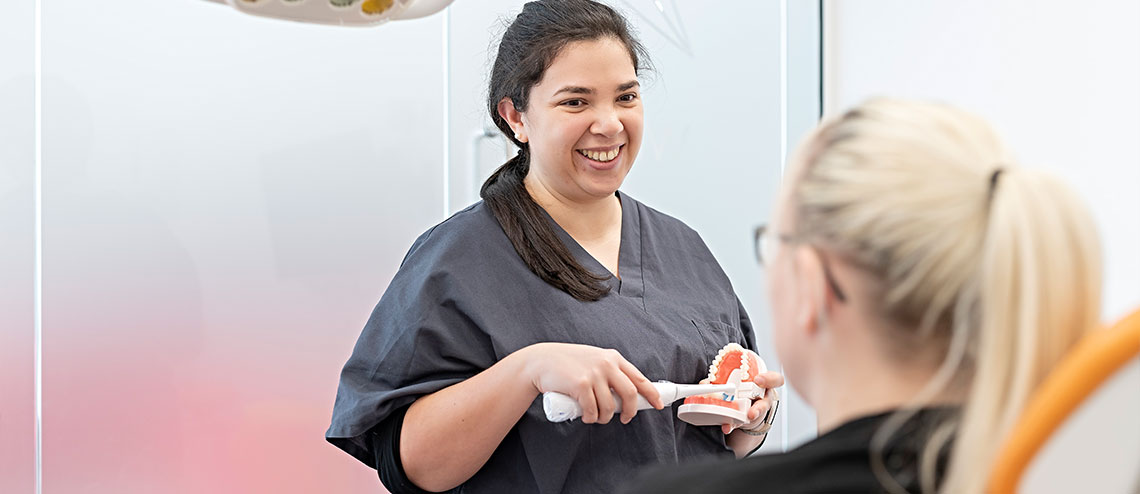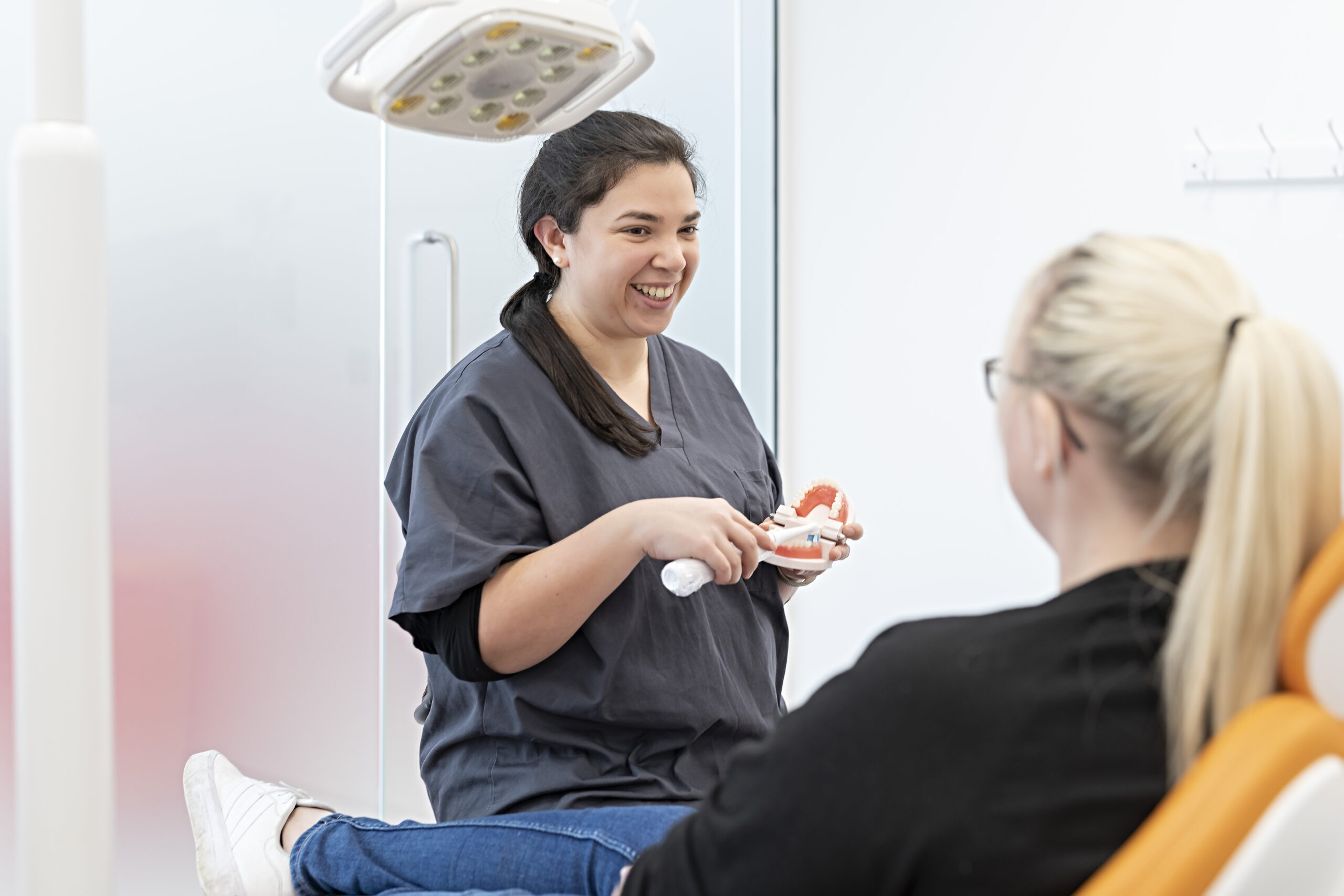Dental hygiene is vital to our well-being, yet it can often be forgotten as life gets busier, such as during back-to-school season or returning to work. Maintaining routines and ensuring our mouths are healthy before problems arise is essential.
Here are some tips to remember to keep your mouth healthy:
1. Brush twice a day for 2 minutes
You should brush your teeth twice daily – once in the morning and once at night. Brushing twice efficiently removes plaque, which contains bacteria and can lead to long-term issues such as tooth decay and gum disease. The time you spend brushing determines how much plaque is removed from your teeth, so 2 minutes is recommended.
For the best results, use a fluoride toothpaste and brush before breakfast.
2. Floss before brushing
Using dental floss or interdental brushes is a vital part of any oral hygiene routine, and research shows that flossing before brushing has more benefits than flossing after.
The purpose of flossing is to dislodge debris and loosen bacteria, stopping plaque from forming. Flossing before brushing makes brushing more effective at removing plaque. Routinely flossing can improve your overall mouth health by reducing the risk of cavities and gum disease.
3. Regular dental appointments
You should see a dentist at least twice a year for a check-up or cleaning. Regular visits ensure that problems like cavities or plaque build-ups can be addressed promptly before they become long-term issues.
Many dentists offer a payment plan to make dentist appointments easier on the pockets, such as Forward Dental Care, which provides a membership scheme. The Forward membership scheme helps spread the costs of dental exams and hygiene appointments throughout the year, so you don’t have to worry about routine appointments becoming too expensive.
4. Be careful with what you eat
Sugar converts into acid in the mouth, which is bad for your enamel, the protective layer on your teeth. The acid wears down the enamel, leading to tooth sensitivity, decay and cavities.
Be mindful of how much sugar you’re having; while you can still have a sugary treat, try to incorporate more high-fibre and crunchy food into your diet.
5. Brush your tongue
When brushing your teeth, spare a moment for your tongue. Plaque can also build up on your tongue, making it appear white and give you bad breath. The white appearance is primarily due to the build-up of bacteria and remnants of our food; gently brushing your tongue is the best way to clean it.
White tongue is usually harmless, but it can indicate further health conditions, so if it doesn’t resume its standard colour after brushing regularly, seek professional medical help.
If you want to learn more about any of these tips or have an inquiry about how you can get better dental hygiene, get in touch with Forward Dental Care.


